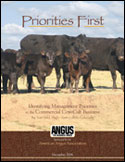Benefits of Planting
Winter Canola Examined
ARS scientists have developed effective production protocols for winter canola.
Winter canola might soon be the crop of choice for Pacific Northwest farmers, thanks to research by U.S. Department of Agriculture (USDA) scientists and their partners. The multitasking annual plant can be used to control weeds, supplement animal feed, produce biodiesel — and spark a new revenue stream for the Colville Confederated Tribes.
Frank Young, an agronomist with USDA's Agricultural Research Service (ARS), was part of a team that evaluated production protocols for winter canola in the Pacific Northwest. Young works at the ARS Land Management and Water Conservation Research Unit in Pullman, Wash.
Pacific Northwest farmers who produce winter wheat must also find ways to control the germination and growth of weeds in their crop fields. But winter canola typically hasn't been a good candidate for weed control because it struggled to emerge in the fall and often couldn't survive the winter.
Young and his partners varied planting dates, planting rates, and other establishment techniques for winter canola and found they obtained consistently good yields — an average of 1,300 pounds per acre — when they planted in mid-August on 28-inch row spacing. This also gave the seedlings enough time to bulk up before the onset of winter.
These findings have encouraged wheat farmers in Washington's Okanogan County to begin planting winter canola to rid their fields of feral rye and diversify their market options. As a result of this research, USDA's Risk Management Agency decided to extend insurance coverage to farmers in Douglas and Okanogan counties to protect them from canola crop losses.
Some of the experimental winter canola crops were grown on land leased from the Colville Confederated Tribes, which now plans to purchase the canola seed from the growers and process it in a biodiesel production facility that they own.
 Then they plan to sell crushed canola meal back to the farmers for supplementing cattle feed and use the biodiesel to power the tribes' fleet of logging trucks, school buses, and other vehicles. These plans align with the USDA priority of developing new sources of bioenergy.
Then they plan to sell crushed canola meal back to the farmers for supplementing cattle feed and use the biodiesel to power the tribes' fleet of logging trucks, school buses, and other vehicles. These plans align with the USDA priority of developing new sources of bioenergy.
Read more about this research in the October 2010 issue of Agricultural Research magazine.





